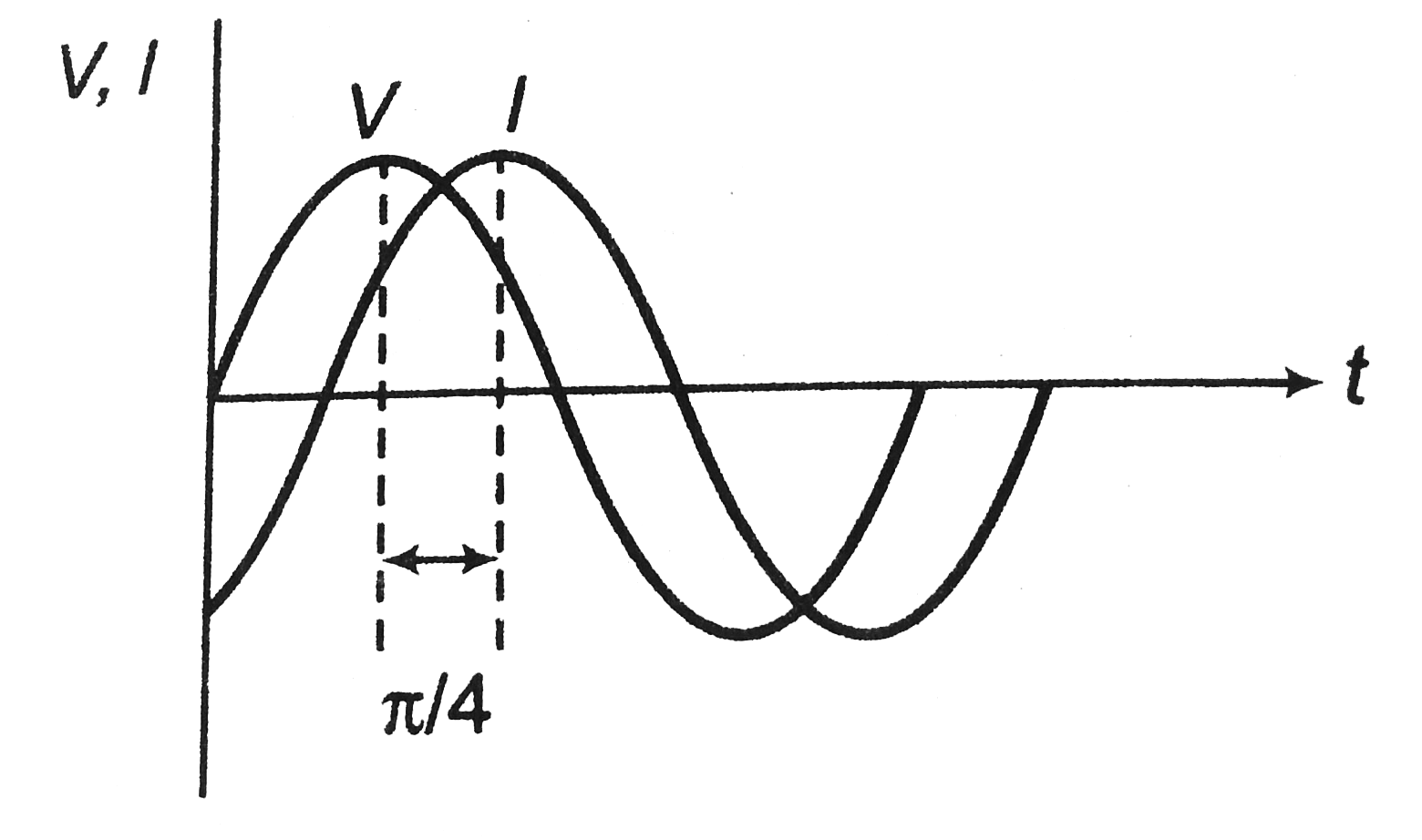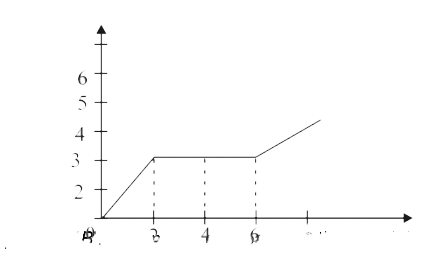Assertion: In an AC, only capacitor circuit has instaneous power equal to zero at any instant of time.
Reason: Phase difference current function and voltage function is 90∘.
If both Assertion and Reason are true and Reason is the correct explanation of Assertion.
If both Assertion and Reason are true but Reason is not the correct explanation of Assertion.
If Assertion is true but Reason is false.
If Assertion is false but Reason is true.
The correct Answer is:D
To solve the given assertion and reason question, we need to analyze both the assertion and the reason step by step.
1. Understanding the Assertion:
- The assertion states that in an AC circuit, only a capacitor circuit has instantaneous power equal to zero at any instant of time.
- This implies that for a purely capacitive circuit, the power does not change with time and remains zero.
2. Understanding the Reason:
- The reason provided states that the phase difference between the current function and the voltage function in a capacitor circuit is 90 degrees.
- In a purely capacitive circuit, the current leads the voltage by 90 degrees.
3. Analyzing the Power in a Capacitive Circuit:
- The instantaneous power P(t) in an AC circuit is given by the formula:
P(t)=V(t)⋅I(t)
- For a capacitor, the voltage V(t) can be expressed as:
V(t)=V0sin(ωt)
- The current I(t) will lead the voltage by 90 degrees, so it can be expressed as:
I(t)=I0sin(ωt+π2)=I0cos(ωt)
4. Calculating Instantaneous Power:
- Now substituting V(t) and I(t) into the power formula:
P(t)=V0sin(ωt)⋅I0cos(ωt)
- Using the identity sin(θ)cos(θ)=12sin(2θ):
P(t)=12V0I0sin(2ωt)
- This shows that the instantaneous power is not zero; it varies with time.
5. Conclusion:
- The assertion that instantaneous power is equal to zero at any instant of time in a purely capacitive circuit is false.
- The reason that the phase difference between current and voltage is 90 degrees is true.
- Therefore, the correct conclusion is that the assertion is false, and the reason is true.
Final Answer:
- Assertion: False
- Reason: True
- The assertion states that in an AC circuit, only a capacitor circuit has instantaneous power equal to zero at any instant of time.
- This implies that for a purely capacitive circuit, the power does not change with time and remains zero.
- The reason provided states that the phase difference between the current function and the voltage function in a capacitor circuit is 90 degrees.
- In a purely capacitive circuit, the current leads the voltage by 90 degrees.
- The instantaneous power P(t) in an AC circuit is given by the formula:
P(t)=V(t)⋅I(t)
- For a capacitor, the voltage V(t) can be expressed as:
V(t)=V0sin(ωt)
- The current I(t) will lead the voltage by 90 degrees, so it can be expressed as:
I(t)=I0sin(ωt+π2)=I0cos(ωt)
- Now substituting V(t) and I(t) into the power formula:
P(t)=V0sin(ωt)⋅I0cos(ωt)
- Using the identity sin(θ)cos(θ)=12sin(2θ):
P(t)=12V0I0sin(2ωt)
- This shows that the instantaneous power is not zero; it varies with time.
- The assertion that instantaneous power is equal to zero at any instant of time in a purely capacitive circuit is false.
- The reason that the phase difference between current and voltage is 90 degrees is true.
- Therefore, the correct conclusion is that the assertion is false, and the reason is true.
- Assertion: False
- Reason: True
Similar Questions
Assertion : In an L−R series circuit in AC, current in the circuit will decrease with increase in frequency.
Reason : Phase difference between current function and voltage function will increase with increase in frequency.View SolutionAssertion: At resonance, power factor of series L-C-R circuit is zero.
Reason: At resonance, current function and voltage functions are in same phase.View Solution
Knowledge Check
- Question 1 - Select One
Phase difference between voltage and current in a capacitor in an ac circuit is
AπBπ/2C0Dπ/3 - Question 2 - Select One
Assertion: If a body is momentarily at rest, it means that force or acceleration are necessarily zero at that instant.
Reason: Force on a body at a given time is determined by the direction of motin only.AIf both assertion and reason are true and reason is the correct explanation of assertion.BIf both assertion and reason are true and reason is the not correct explanation of assertion.CIf assertion is true but reason is falseDIf both assertion and reason are false.
Assertion : In series L−C−R circuit, voltage will lead the current function for frequency greater than the resonance frequency.
Reason : At resonance frequency, phase difference between current function and voltage function is zero.View SolutionIn series LCR AC circuit, the voltage of the source at any instant is equal to
View SolutionAn Ac voltage V=V0sin100t is applied to the circuit, the phase difference between current and voltage is found to be π4, then
 .View Solution
.View SolutionAn Ac voltage V=V0sin100t is applied to the circuit, the phase difference between current and voltage is found to be π4, then
 .View Solution
.View SolutionAssertion :− Change in internal energy is zero for all gases at constant temperature.
Reason :− Internal energy is function of temperature only.View SolutionThe charge on a capacitor plate in a circuit, as a function of time, is shown in the figure. What is the value of current at t=4s?
 View Solution
View Solution
